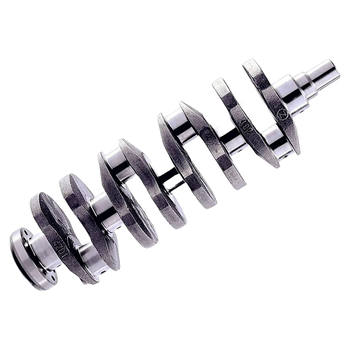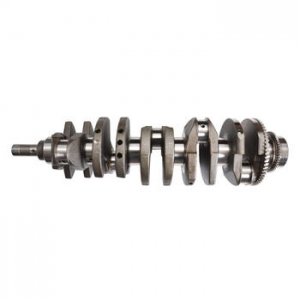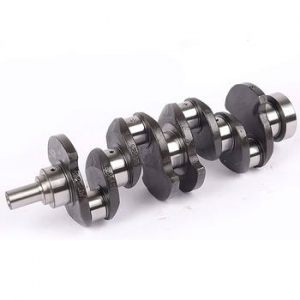Decoding Crankshaft Bearings
You might be wondering, "What exactly are crankshaft bearings?" Well, to be honest, they're small but mighty components essential for your engine's smooth operation. These bearings support the crankshaft, allowing it to rotate freely while minimizing friction. They come in various types, such as main bearings and connecting rod bearings, each playing a crucial role in maintaining engine stability and performance.
The Role of Crankshaft Bearings
Here's the thing: crankshaft bearings are vital in transforming linear motion into rotational motion. They ensure that the pistons' up-and-down movement is efficiently converted into the crankshaft's rotational force, which ultimately powers your vehicle.
Signs of Wear and Tear
As it turns out, identifying worn-out crankshaft bearings can be challenging since the symptoms often mimic other engine issues. However, here are some common signs to watch out for:
Inspecting and Diagnosing Crankshaft Bearings
If you suspect a problem with your crankshaft bearings, consult a professional mechanic for an accurate diagnosis. They'll perform a series of tests, including checking oil pressure, inspecting the oil pan for metal debris, and conducting a compression test.
Maintenance and Replacement Tips
Regular maintenance is key to extending the life of your crankshaft bearings. Here are some practical tips:
- Change your engine oil and filter at recommended intervals
- Monitor oil levels and condition
- Address any unusual engine noises promptly
When it's time for a replacement, consider upgrading to performance bearings designed for enhanced durability and reduced friction. Consult with an automotive expert to find the best option for your vehicle and driving habits.
Choosing the Right Replacement Bearings
Interestingly enough, not all crankshaft bearings are created equal. When selecting replacement bearings, consider factors such as material, clearance, and coating. For instance, high-quality materials like tri-metal alloys offer superior strength and wear resistance, while advanced coatings can reduce friction and heat generation.
Conclusion
In conclusion, crankshaft bearings play a critical role in your engine's performance and longevity. By understanding their function, recognizing signs of wear, and following maintenance best practices, you can keep your vehicle running smoothly and avoid costly repairs down the road. If you're unsure about the health of your crankshaft bearings or need guidance on replacement options, don't hesitate to consult an automotive professional.
Next Steps
Now that you're armed with knowledge about crankshaft bearings, take action to protect your engine. Schedule routine maintenance, stay vigilant for warning signs, and invest in quality replacement bearings when needed. Your vehicle – and your wallet – will thank you!




